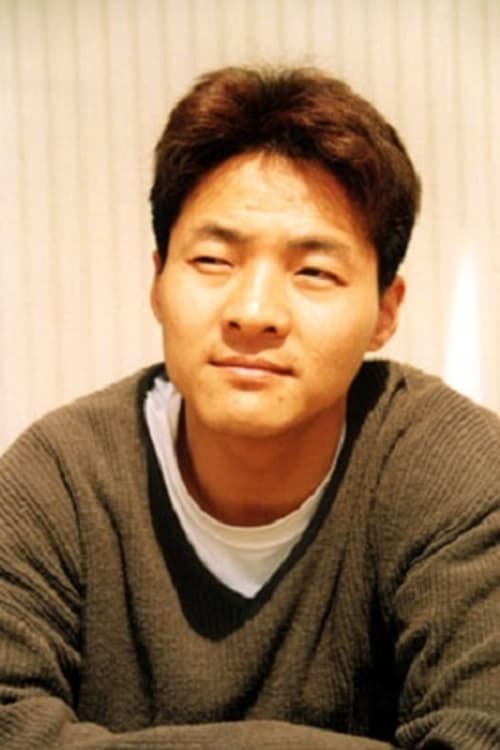Paju (2009)
So close to want but forbidden to love.
Жанр : драма, мелодрама
Время выполнения : 1Ч 52М
Директор : Park Chan-ok
Краткое содержание
A young woman living in the South Korean town of Paju recalls the last 8 years of her life, since a young man on the lam escaped to it from Seoul and married her older sister.

A tough sergeant has to teach a hotshot young soldier how to be a team player.

Four strangers are wandering through town. Fanny, a young woman who takes care of trees, will cross paths with three people along her way and offer them her help: Jean-Luc is blind, Joséphine has reached the end of her life, and Carole is suicidal.

Li Hung is a desperate mother who tried for years to obtain an American visa to study to create a better life for her husband Nansan and her son. But after a short time, she loses contact with her family, and her husband, Nansan smuggles himself to New York to find her.

Sisters Maria and Anna live together. Maria is a most proficient executive secretary, encouraging Anna to finish her studies and start a career. Anna broods, threatens to quit university, takes pills, and keeps a diary. When Maria's relationship with Maurice, the son of her boss, starts to lead to love, Anna takes a selfish and drastic step that plummets Maria into solitude. No longer able to connect with Maurice, Maria does establish a relationship with Miriam, a typist at her office who becomes a surrogate younger sister. But Maria is intrusive as well as helpful. Can this or any relationship work out for this talented woman whose past seems to choke her soul?

German people having trouble with love and identity.

Земле грозит неизбежное столкновением с кометой, что приведет к гибели всего живого. Президент США сообщает миру, что до «столкновения с бездной» остается год. На комету отправляют корабль «Мессия» который должен взорвать комету. Но от взрыва комета разлетается на две части. Ничто не может спасти человечество. Как поведут себя люди?
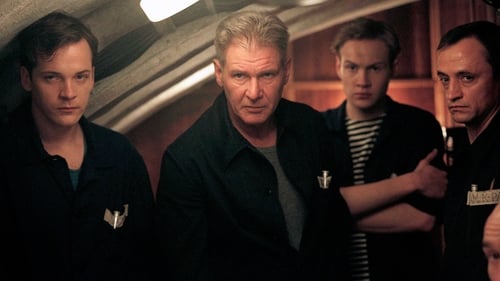
Фильм основан на реальных событиях, произошедших с первой атомной советской подводной лодкой, которая потерпела аварию из-за неполадок в атомном реакторе в 1961 году. К-19 — это зримое свидетельство героизма русских моряков, которые служили на этой подводной лодке. Фильм демонстрирует героизм капитана Алексея Вострикова, который в разгар холодной войны берет на себя командование атомной подводной лодкой К-19 вместо ее первого капитана Михаила Поленина. Миссия Вострикова — быстро подготовить подлодку к погружению, чего бы это ни стоило. Но Востриков, Поленин и члены экипажа К-19 не могли себе вообразить всего, что от них ожидалось. Они не могли представить какой ценой обойдется для них стремительность подготовки субмарины к погружению…

Лилиан - эмоционально пренебрегаемая, но материально избалованная дочь знаменитого отца. В начале повествования, расставшись с бойфрендом, героиня перебирается в пустующую отцовскую квартиру, расположенную в Бруклине. Это особенный квартал, ведь здесь на каждом углу можно встретить какую-то знаменитость. Соседкой Лилиан становится Джулия Прайс – известная, опытная и молчаливая писательница. Она ведёт затворнический образ жизни, почти не общается с собственным мужем. Несмотря на это, с момента переезда героини писательница преображается. Изменения становятся ещё заметнее, когда между девушками устанавливается необычная переписка через записки в дневниках… В конечном счёте такой стиль общения настолько заинтриговывает саму Лилиан, что она решает снять документальный фильм о своей соседке!

There was a lazy, forgetful girl named Rin. After her boyfriend, Pek, has left her with nothing but the goldfish he bought her, she has been trying to live normally and bring herself back but it seemed like she just could not help it.

As a woman anxiously awaits her overdue period, she performs African-based rituals of purification. She cleans house and body, and calls on the spirits (Orishas in the Yoruba tradition), receiving much needed inspiration and assurance in a dream. The film combines beautifully intimate still and moving images of the woman’s body and home space, along with playful stop-motion sequences. —Jacqueline Stewart, UCLA Film and Television Archive

The folks who populate the rundown hotel in this story have all come there from someplace which offered a modicum of hope. Gloria, who runs the place, earns most of her money as a stripper. She lives there with her two daughters and a son with an untreated brain tumor. Charlie, who is forever in and out of jail, is Gloria's sometime lover. A recent check-in is there hoping she can work up the courage to commit suicide, since her rich doctor husband ran off and left her. Another resident is Tim, who keeps company with his dog and his booze in equal measure. A schoolteacher comes by from time to time, hoping to do these people some good, but in choosing this lot to work with, she proves to be just as much of a loser as the rest of them.

Marion is a 14 year old girl, on holidays at the sea. She is in conflict with her mother and family. She meets a man there, to whom she feels close. Back in Paris, she goes to see him again. For the first time, she is going to make love.

This adaptation of Geothe's The Sorrows of Young Werther offers a chilly and remote view of love and its passions. The setting is changed to Spain, and Werther (Eusebio Poncela) has taken a job tutoring the son of an estranged husband and wife. The boy's mother is a surgeon and therefore a rather uncommon woman for her society. She and Werther gradually become romantically involved, and his feelings for her begin to run much deeper than is apparent on the surface.
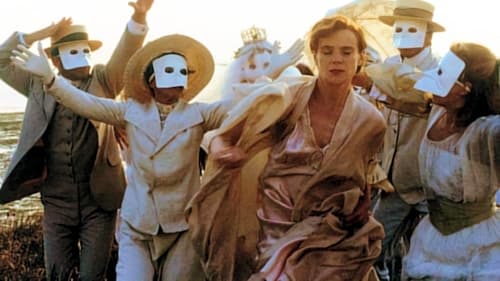
About the Swedish author Agnes Von Krusenstjerna during the period of her marriage to David Sprengel. In the hallucinatory opening sequence she is brought in a straitjacket by her husband and two psychiatric nurses through the Venice Carnival nocturnal antics to a mental hospital in the city. With her is a manuscript of her autobiography, which she calls "her child". The book is Agnes showdown with her family, and in flashbacks presented, Agnes progress from the author of innocent girls' books to serious and self-consuming novelist.

This poignant human drama is phrased as a "small sonata" in three movements -- a novel approach by director and writer Micheline Lactôt to tell the story of two teenage girls. In the first movement, Chantal (Pascale Bussieres) rides the same bus every day and slowly develops an infatuation with the bus driver. Their interactions are expressed through gestures and glances and facial expressions, but not words. Just as Chantal is getting old enough, and maybe courageous enough to actually say something to the driver, fate steps in and she loses her chance. In the second movement, Louisette (Marcia Pilote) hides out on a fishing boat and is discovered by a Bulgarian fisherman who treats her with kindness and consideration and they spend a special evening together -- without being able to speak a word in the other's language. In the third movement, Chantal and Louisette become friends, and as kindred spirits they share a sense of loss and hopelessness.

In this melodrama about love in wartime, Angela (Ida-Lotta Backman) is a Finnish nurse in Lapland who begins a torrid affair with Thomas Schmidt (Mathieu Carriere), a wounded German army captain. Their love for each other is verboten in Finland, where the Germans occupy northern Lapland until the end of the war. Finland had formed a brief alliance with Germany to fight an invading Russia in the winter of 1939, but when the Russians won that battle and took more than 16,000 square miles of land away from Finland, it was too late to successfully rout the Germans from Finnish soil. So for the entire war, the Finns were fighting Germany on their own national territory -- which makes the love affair between a Finnish nurse and German soldier a very complex issue. While Angela receives different reactions from her friends, acquaintances, and relatives, she continues on with her love for the German, against odds which are greater as time goes by.
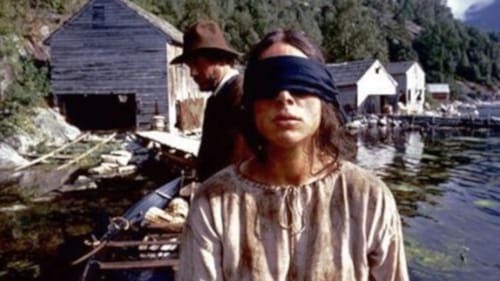
Having gone through many personal struggles, Eli (Lil Terselius) returns to her native village and begins to work on the farm of Ingeborg Eriksdotter (Anita Bjork), eventually tending a plot that once belonged to her family. But Eli has been gone a long time, and the opaque villagers see her as an outsider—she is suspicious from the start. The year is 1625, and stories of witches conjuring up evil are a part of the daily culture. Eli unwittingly makes matters worse for herself when she is able to cure the sick with herbs, and when she begins an affair with Aslak (Bjoern Skagestad) a farmhand—clearly she must have cast a spell on him. This all adds up to a witch hunt with a ready-made "witch." Eli, in the end, is officially accused of witchcraft by a devious bailiff, while Ingeborg makes every attempt to save her, and Aslak himself does not survive the stress—hardly a good omen for the outcome of the trial.

Writer and filmmaker Assia Djebar explores Algerian history, the psychological impact of war, and post-colonial female identity in this 1979 classic of film literature. Named for (and taking its structure from) a traditional song with five distinct movements, the film combines documentary-style observation with loose narrative form to tell the story of Lila, an Algerian expatriate returning to her country 15 years after independence has been won. In comparing her life with the lives and experiences of rural Algeriennes, Lila is able to put her childhood demons to rest and discover a new history -- one written in the ongoing strength of generations of women. Like much of Djebar's writing, the film has a strong subtext dealing with resistance to patriarchy and women's desire to appropriate the means of power and expression -- one of which, of course, is the filmmaker's camera.
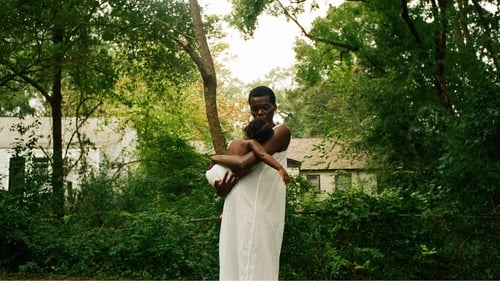
Tender caresses and enveloping embraces are portals into the life of Mack, a Black woman in Mississippi. Winding through the anticipation, love, and heartbreak she experiences from childhood to adulthood, the expressionist journey is an ode to connection — with loved ones and with place.















